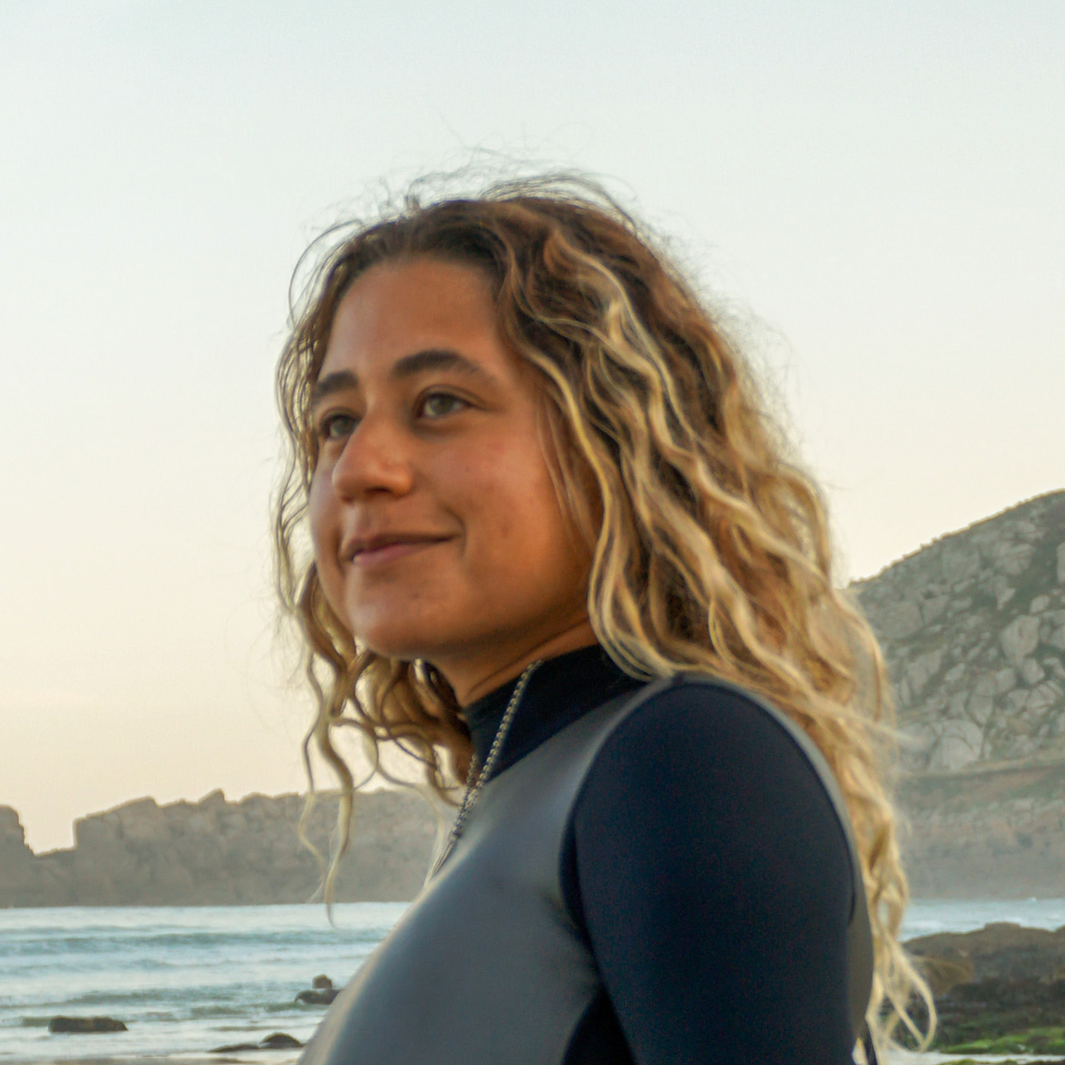To say that menstrual periods are inconvenient is an understatement. They cause symptoms from bloating to painful cramps and mood swings. But at least you can count on your period to arrive at the same time each month, right?
Not always. According to a study by Critchley and Whitaker in 2015, around 14% to 25% of people who menstruate experience irregular cycles. And even those with regular cycles might find them affected by various external factors, such as stress or medication.
Around 1 in 3 respondents told us that travelling did affect their period.
We wanted to find out more about the effects of travel on menstruation, so in August 2025, we carried out a survey of 185 people who menstruate. The survey had two aims: to determine if travel disrupts menstrual cycles, and to assess the extent to which menstruation impacts enjoyment of travel.
The results surprised us.
Around 1 in 3 respondents told us that travelling did affect their period—it arrived early or late, and/or their symptoms worsened.
To find out why, we spoke to Dr Gemma Sharp, a professor of epidemiology and leader of the Menarche, Menstruation, Menopause and Mental Health (4M) Consortium. We also spoke to Theerada Moonsiri, an avid traveller, who told us her personal experiences of menstruation while on the road.

Why Travel Can Disrupt Your Menstrual Cycles
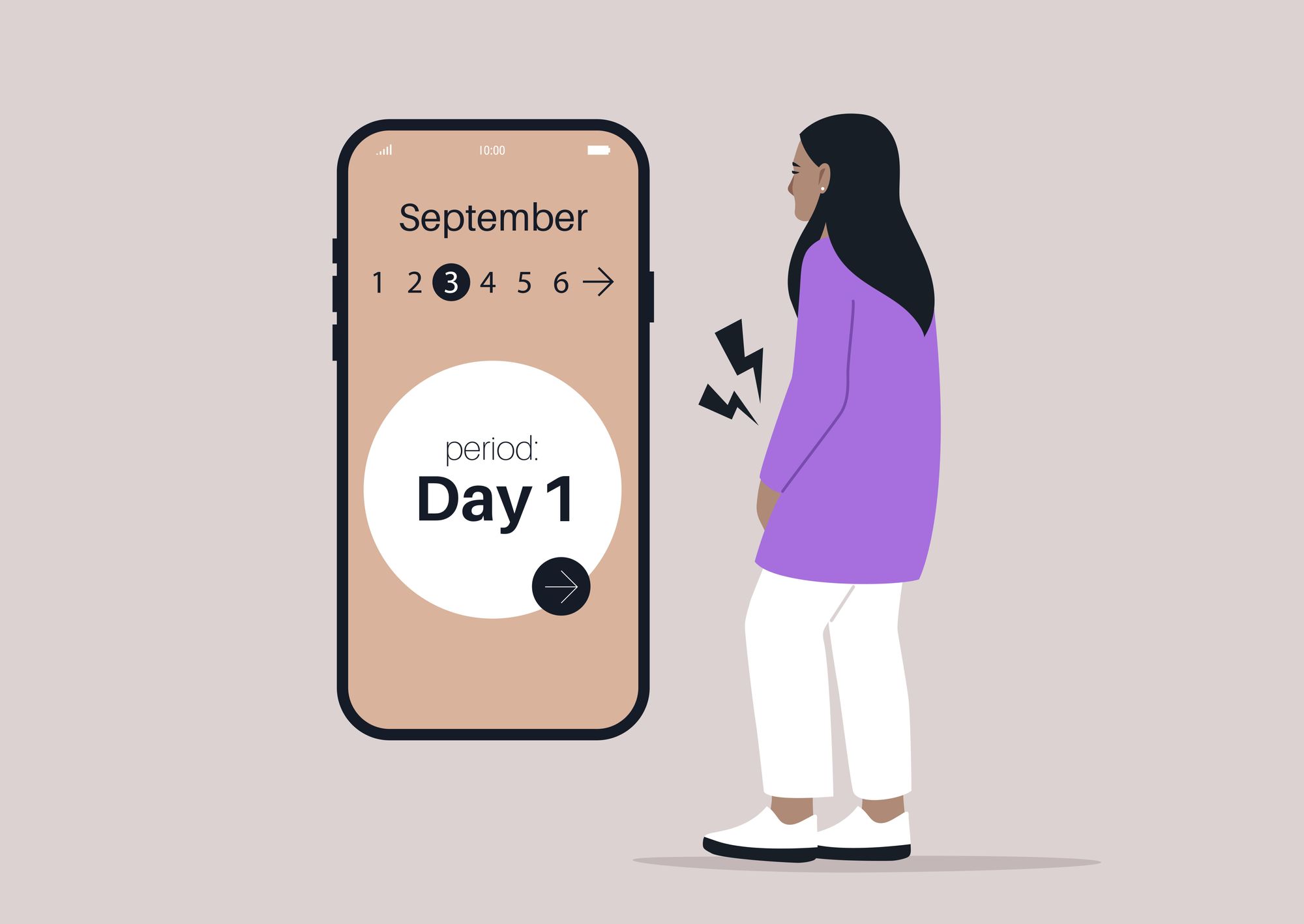
Travel doesn’t affect everyone’s period. 60% of travellers we surveyed experienced no change. However, around 22% had early periods, 22% had late periods, and 13% reported worsened symptoms during travel.
“It's possible that travel itself could affect the cycle,” says Dr Sharp. “If you're travelling, you might be crossing time zones. You might be jetlagged; you might be tired from the travelling itself."
Travelling is physiologically stressful in that you're tired: you change your exercise routine, you change your diet. That puts strain on the body
The menstrual cycle is influenced by your circadian rhythms, the internal 24-hour clock which regulates our sleep-wake cycles by responding to changes between light and darkness. Getting enough sleep is vital for the regulation of hormones such as melatonin and cortisol.
However, when you travel across time zones you’re exposed to light at different times of day, confusing your body and disrupting your sleep. This can trigger hormonal changes in your body, which might disrupt your menstrual cycles.
“Your body is a regulated system, so disruption to one part of the system quite often disrupts other parts of the system,” says Dr Sharp.
The ‘positive stress’ of travel can also affect your menstrual cycle.
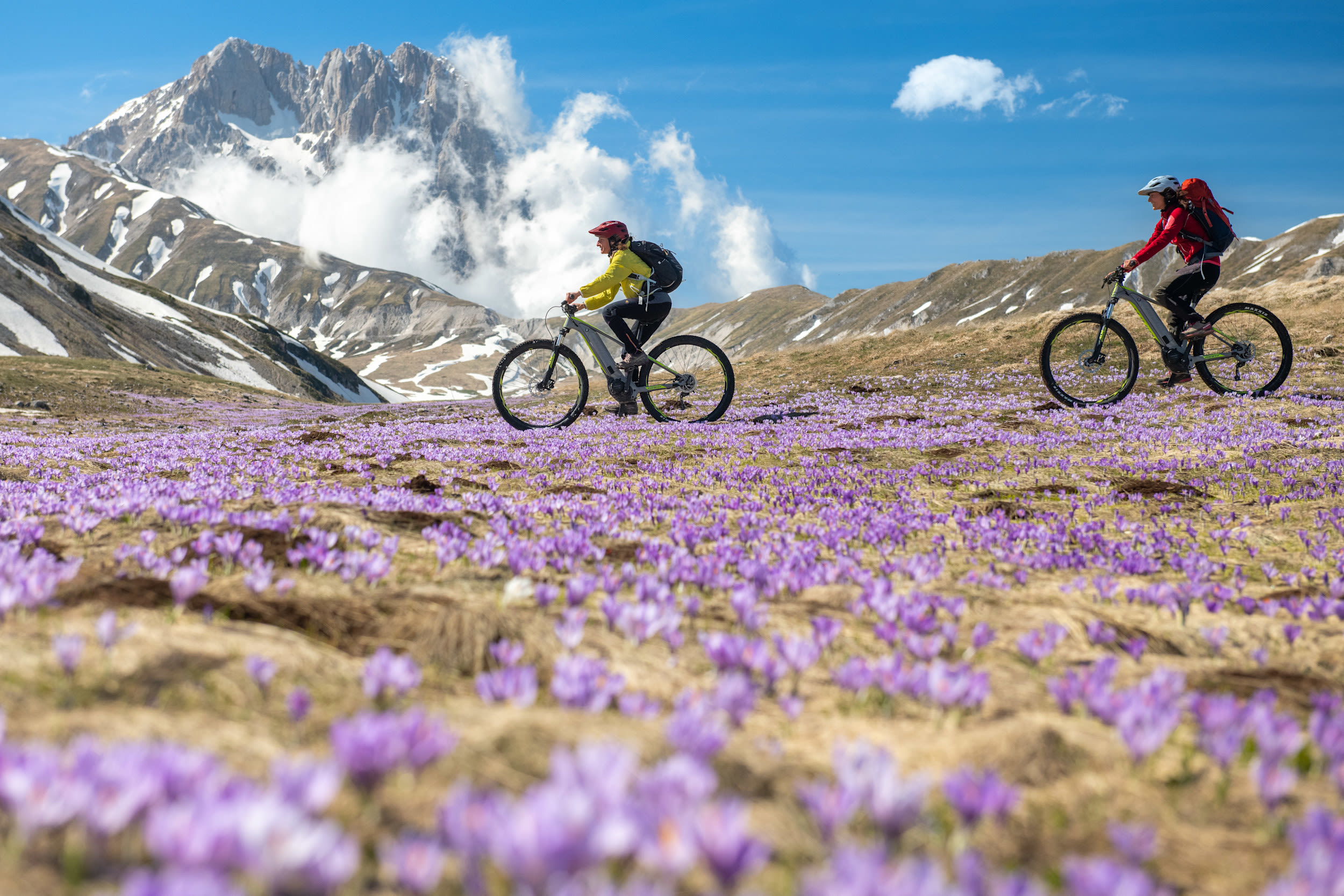
“Travelling is physiologically stressful in that you're tired: you change your exercise routine, you change your diet. That puts strain on the body,” Dr Sharp says. “But it's also psychologically stressful. Even if you are excited about going away, there are big changes that you might be a bit anxious about.”
Arguably, this ‘positive stress’ is particularly prevalent in adventure travel, where you’re pushing your body to its mental and physical limits.

When you're stressed—emotionally or physically—your body releases more cortisol, which is part of your body's “fight or flight” system. High levels of cortisol can disrupt the hormones (like oestrogen and progesterone) that control your menstrual cycle. This can lead to late periods, skipped periods, heavier or lighter bleeding, and more painful cramps.
For example, a study by Ossewarde et. al. showed that the brain responds differently to stress during the late luteal phase (the second half of the cycle), which then affects your cycle. Other researchers found that moderate to chronic stress can either delay ovulation or stop it altogether.
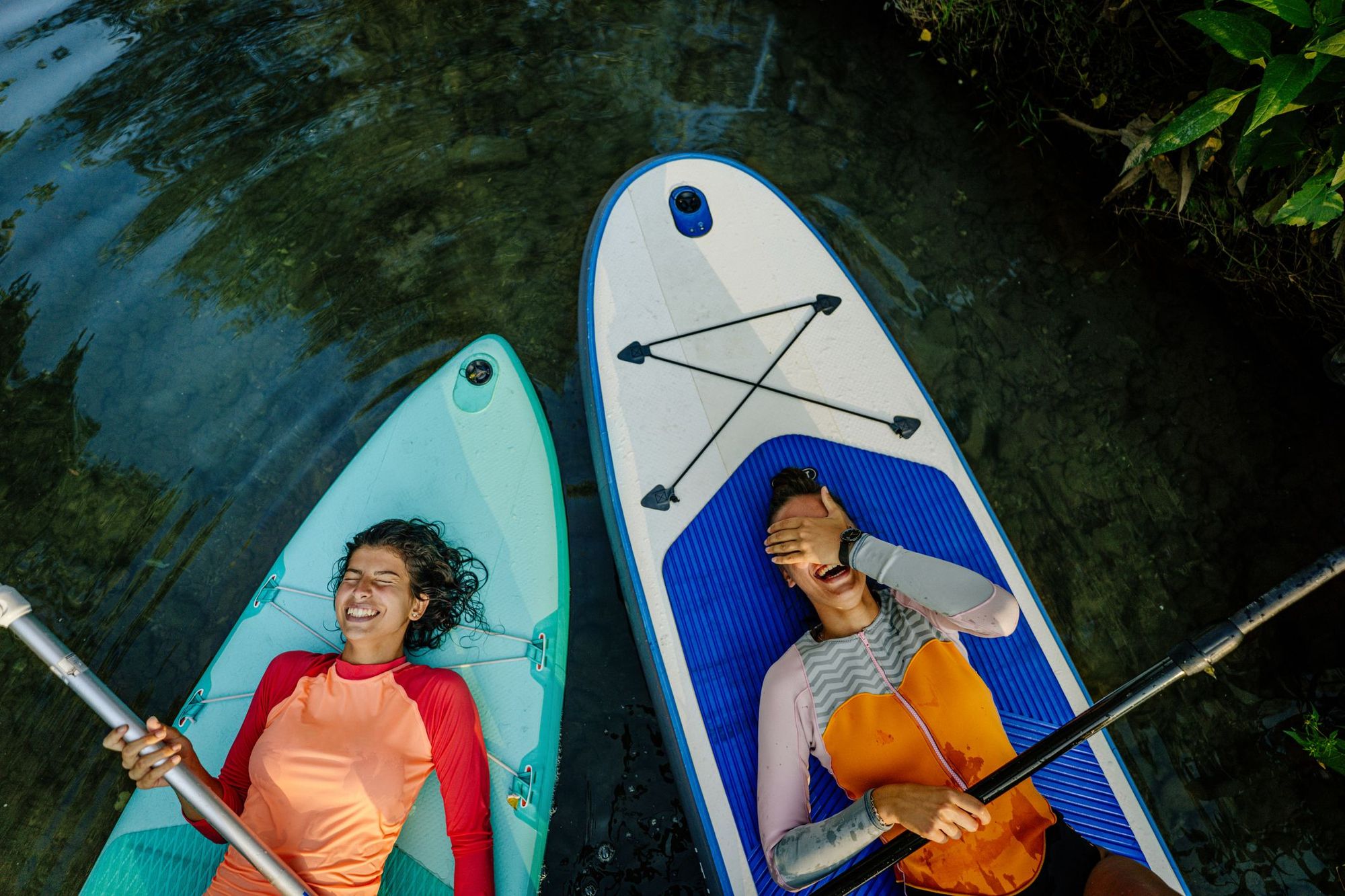
This is intended as an explanation, rather than a caution against travel—which has manifold other benefits such as building confidence and broadening your horizons. Besides, any disruption to your cycle is only temporary.
“These changes tend to be really short term and not reflective of any problem. But while your body's readjusting, there can be a short-term disruption,” Dr Sharp says.
How Menstruation Can Affect Your Enjoyment of Travel

There are numerous physiological and mental symptoms associated with menstruation. According to our survey, some of the most common were bloating (experienced by 60% of respondents) and fatigue (52% of respondents).
34% of respondents also experienced heavy bleeding—which we defined as having to change a pad, tampon or cup every 1-2 hours—and 27% of respondents experienced moderate to severe pain. Some of the symptoms listed under ‘other’ included migraines and joint pain. One respondent, who has PMDD (premenstrual dysphoric disorder — a severe form of PMS), described having symptoms including “suicidal thoughts, high anxiety and hopelessness.”
Perhaps unsurprisingly, our survey revealed 36.2% of people report changing or delaying their travel plans because of their periods.
Theerada Moonsiri, one of our survey respondents, told us that her period dictates when she will and won’t travel.
I would rather avoid travelling on dates when I have my period than book something and have to cancel later
“I have painful periods. It affects a lot of my plans,” she says. “I plan my travel around it. It's not a secondary thing, it's a primary thing.
“I use a period tracking app and it’s quite accurate. My cycles are regular. I would rather avoid travelling on dates when I have my period than book something and have to cancel later. Most of the time when I go travelling, the activities that I do are quite intense: hiking; cycling or swimming.
“When I started my period 20 years ago, tampons were not a thing in Thailand. Even at the age of 30, I don't really know how to use tampons so I only use pads. People say, ‘oh, you just use tampons to go swimming’ but it's not that easy to switch from something that I have used for my entire adult life.”

We also asked what the most difficult part of having your period while travelling was. The majority of respondents cited inadequate bathroom facilities (59%) and feeling less confident (40%). “Flooding causing the need to change clothes is incompatible with hiking more than half a day,” one respondent said. Flooding refers to a surge of heavy bleeding that can soak through your sanitary product.
Another wrote: “having to plan ahead. Will I be able to find a loo? If hiking all day, should I take disposable bags in case I need to change my tampon on the trail?”
“Feeling less confident can be interpreted in several ways,” Dr Sharp says. “People might be more worried about leaking and not being able to get to a toilet or find the right products. People become hypervigilant when they’re worried about that happening. If they’re participating in activities that increase fear of leaking, like swimming, that might influence their confidence.
Will I be able to find a loo? If hiking all day, should I take disposable bags in case I need to change my tampon on the trail?
“Body confidence is something that's come up in our research as well. We did a study last year and asked people how confident they felt about their body every day throughout their menstrual cycle. People said that they were much less confident about their bodies, and felt less attractive on the days that they were menstruating. It's probably related to things like bloating, and fatigue.”
Managing Your Period While Travelling
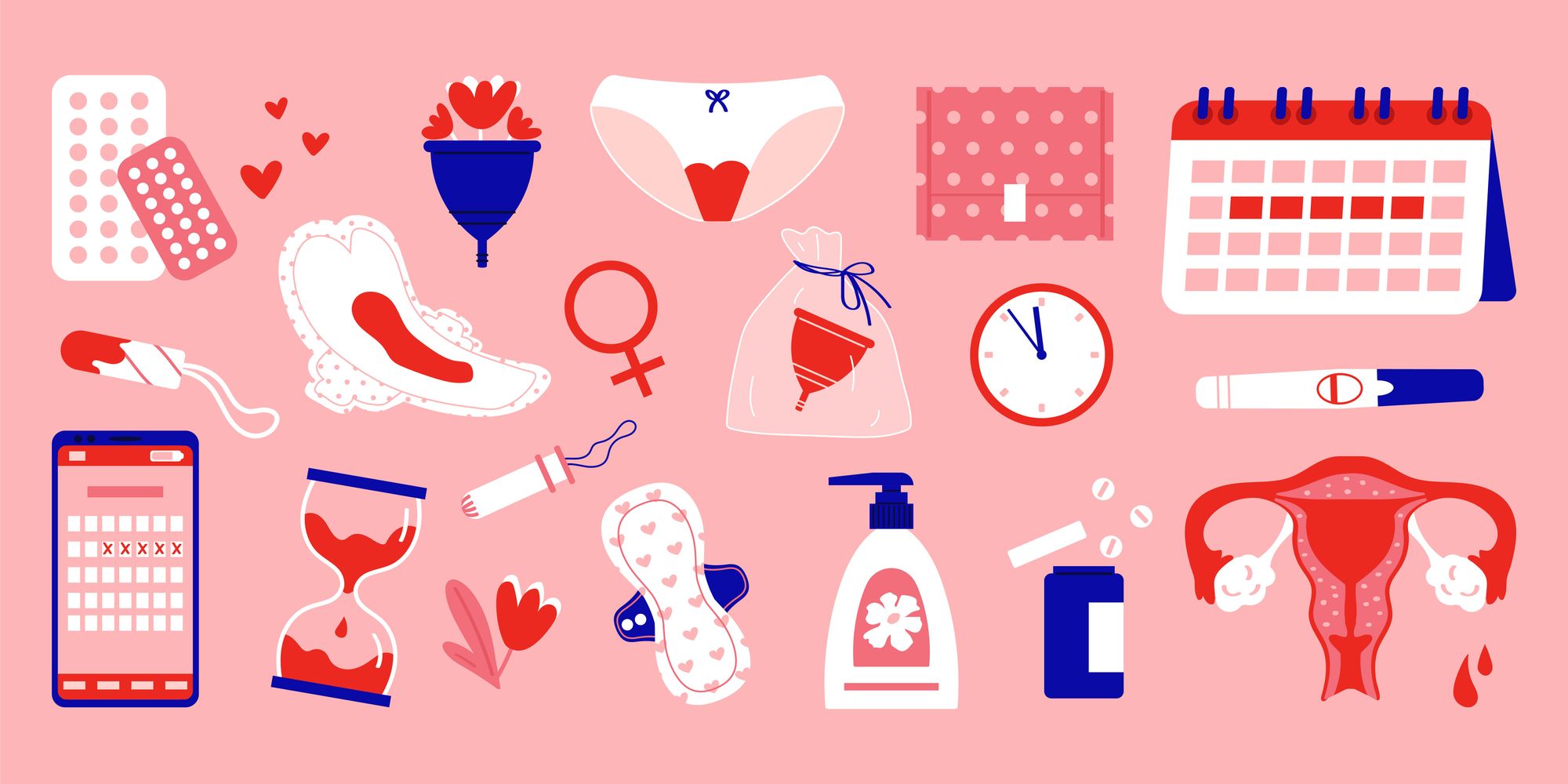
So, how do you manage your period while travelling?
This is not an article where we are going to offer you a miracle cure. Every body is different, so it's important to do what works best for you.
Some people might choose to track their period and avoid travelling during it entirely, like Theerada. Others might choose to delay their period by taking two packs of their contraceptive pills back to back or using norethisterone (oral progesterone).
“Norethisterone essentially shuts down your menstrual cycle and stops ovulation,” Dr Sharp says. “Not everybody wants to, or can, take this. I don't have a particular view on whether it's good or bad: it depends on what people want to do.”
It’s important to seek medical advice if you’re considering either of these options. Side-effects of norethisterone include spotting and bloating, so taking it isn’t a guarantee that you’ll be entirely symptom-free.
Theerada has found that over-the-counter painkillers help her manage her pain. Iron supplements have also reduced her symptoms, especially mood swings (again, check with a medical provider before trying this yourself).
I get so irritated when I'm on my period, like slow walkers annoy me 10 times more
“In the week leading up to my period, I take iron supplements,” she says. “It makes me less cranky. I get so irritated when I'm on my period. Slow walkers annoy me 10 times more. But when I take the iron supplement, even the day before my period when I have sore thighs and pain, I can go and do my 5k run. I can still go to hot yoga, and I don't feel destroyed after that.”
Theerada also recommends stick-on heating pads, which have helped her reduce menstrual cramps on the trail. She always takes emergency sanitary products with her on holiday, even when her period isn’t due.
“I still carry medicine, pads and tampons just because I know how terrible it can be for someone who menstruates and doesn't have these things,” she says.
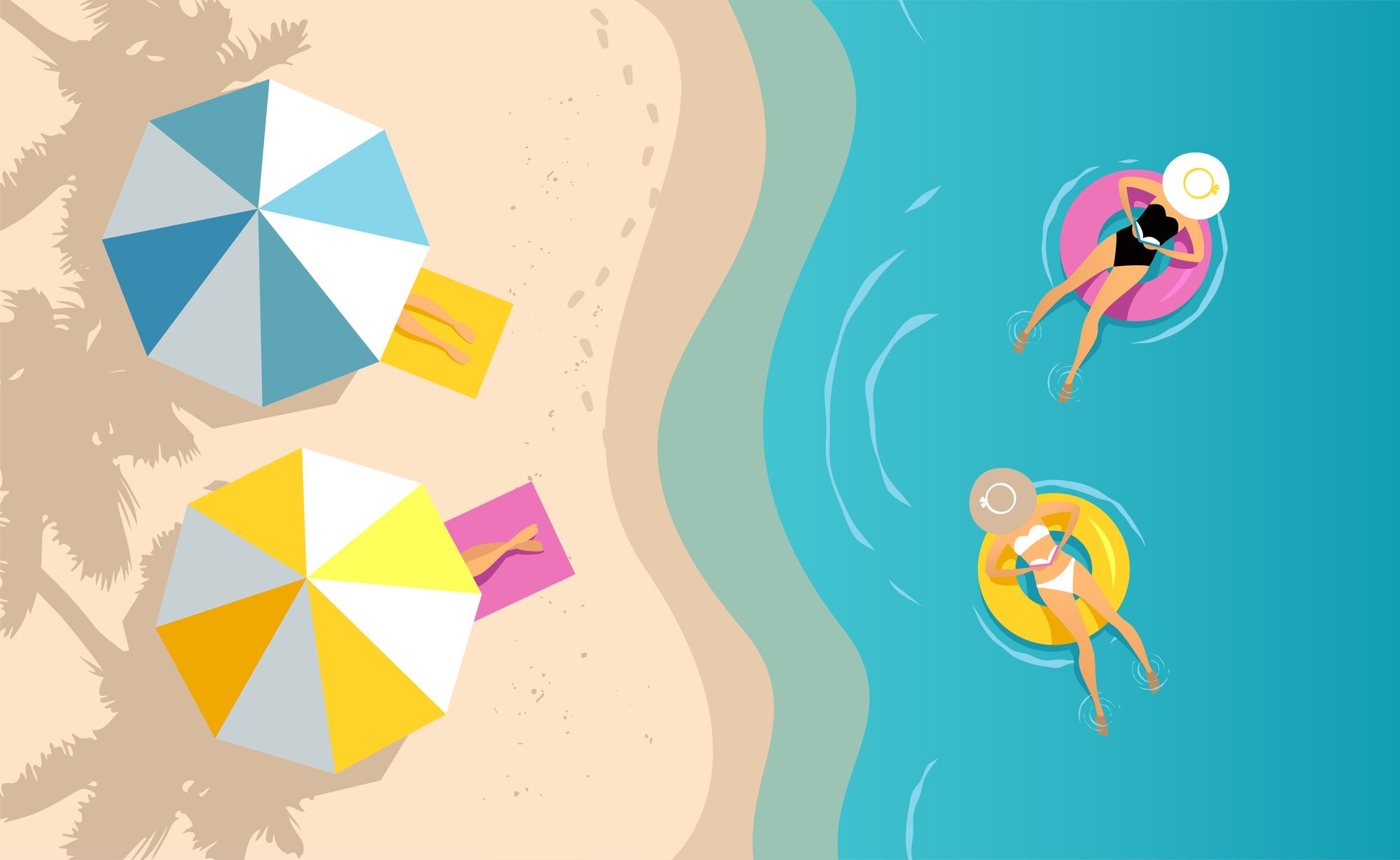
Dr Sharp’s advice for dealing with unpredictable periods while travelling is to take steps to reduce physiological stress.
“Try to avoid jet lag, try to get into the new circadian rhythm that you'll be in whilst you're on holiday,” she says. “Just look after yourself, and recognise that your body's under increased stress, even if you're enjoying the trip. Rest and relaxation are really important as well.”
However, she does reiterate that while travel might disrupt periods, the change is temporary. If you develop problematic, debilitating symptoms, it’s time to see your GP or gynaecologist.
It's really important that as a society we support people who menstruate rather than expecting them to fall in line with everything else.
“Menstruation on its own shouldn't be a barrier to a good quality of life,” she says. “A lot of people don't realise this—maybe their mum or their sisters have similar symptoms so they think this is normal. But it should never be normalised to have severe pain or really heavy blood loss to the point that you're anaemic. Go to the doctor and push for it to be taken seriously, for investigations to be run.
“It's really important that as a society we support people who menstruate rather than expecting them to fall in line with everything else. Being able to access toilets and menstrual products while travelling are a basic requirement for menstruators. Travelling is a heightened example of how difficult it can be sometimes to manage menstruation in the society that we've built for ourselves. A lot of the problems come from a lack of understanding about menstruation and what people need.”
So what is it that people who menstruate need whilst travelling?
For Theerada, it’s simple. Being aware of the difference between people who menstruate and the people who don’t is a good start.

“There’s this stigma that women pack too much,” she says. “But so much is going on in our bodies that it makes sense we’re carrying two more pairs of pants and shorts, just in case we get our period and don't have access to washing facilities and bathrooms.”
“On guided trips, I think it's really important to come together at the beginning of the day and outline where the comfort breaks will be. Are we going to get to use the toilet? Do we have to carry more water—when you’re on your period and go to the toilet in the wild, you might want to use some water to clean things up.”
Travelling is a heightened example of how difficult it can be sometimes to manage menstruation in the society that we've built for ourselves
While travel might temporarily disrupt your cycle, and periods can certainly make adventure less comfortable, they should never be a reason to stay at home. With the right preparation—whether that’s tracking your cycle, packing extra products, or finding strategies to ease symptoms—menstruation can be managed on the road.
What’s harder to navigate is the lack of facilities and the silence around the subject of menstruation. If we want travel to be truly inclusive, it means recognising these challenges and supporting people who menstruate, rather than expecting them to adapt in silence. After all, adventure is about freedom and discovery—and no one should have to miss out because of a period.
Inspired to travel? Check out our adventures across the world.

